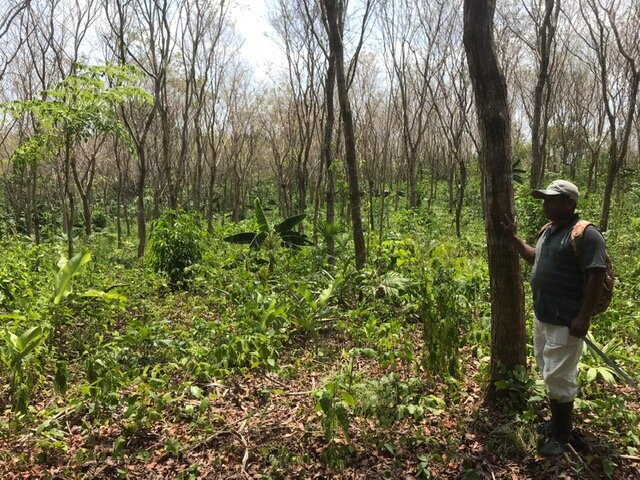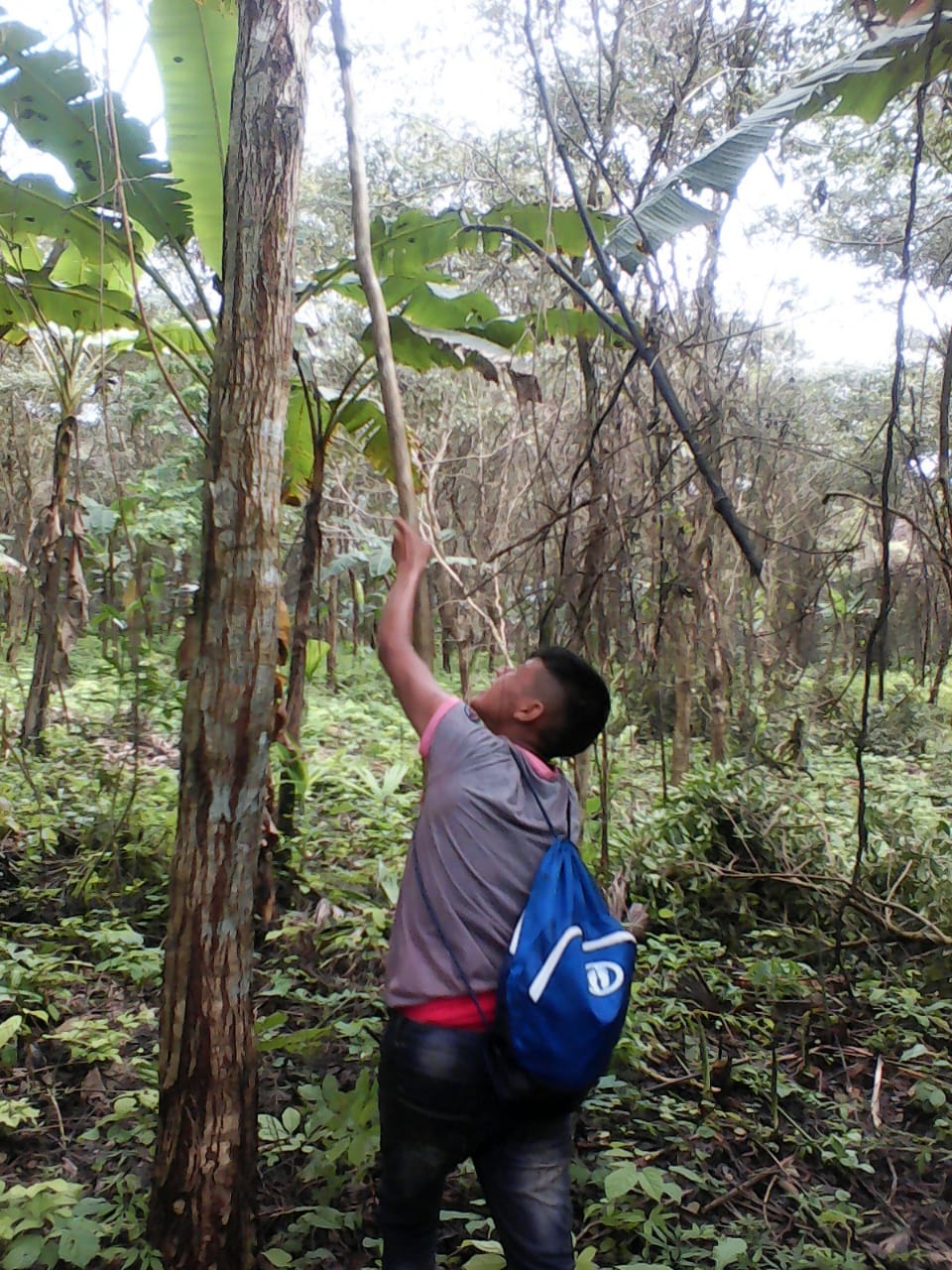Ecuador trip
/Guest post from Chris Meyer, writing from Ecuador
 Deforested land in Arimae's reserve to be replantedFellow co-founder Andrew Wulf and I visited a Guarani indigenous village outside of Tena while on vacation/work. While there were numerous similarities between Panama and Ecuador in relation to conservation, economic opportunities, problems with land, and resource management, there were also many differences.
Deforested land in Arimae's reserve to be replantedFellow co-founder Andrew Wulf and I visited a Guarani indigenous village outside of Tena while on vacation/work. While there were numerous similarities between Panama and Ecuador in relation to conservation, economic opportunities, problems with land, and resource management, there were also many differences.
I arranged to stay with the brother of the President of the regional Guarani organization. He lives in his own little "compound" consisting of a couple of houses where his various children now live with their children. In total, about 15 people lived in the compound (10 under the age of 13). Along the river they had cleared about three hectares (7.5 acres) to plant corn (mostly for animals), papaya, cacao, yucca, plantains, bananas, and other fruiting trees indigenous to the area.
He probably controlled (with title) at least 250 hectares of prime jungle and supplemented his family's diet with wild game (we ate peccary and monkey) and fishing. As with many of the indigenous Panamanians I know, he may have been "cash poor", but no one was going hungry and there seemed to be a strong social safety net within the family.
This gentlemen's land was next to the oil production facilities operated by the Ecuadorian government. He informed us and showed us a map of where one of the oil companies wants to drill on his land, but he won't let them. Ecuador is similar to Panama in the sense that under ground minerals belong to the general public (i.e. government) and not the individual landowner. In this case, even though he doesn't own the oil rights (sold in concession by the government), he has to give permission to the company to access his land to exploit.
We discussed the potential oil drilling with his son (23-year old w/ a tourism background). Interestingly, not once did the son mention potentially becoming very wealthy in a monetary sense from drilling royalties. To him and his father, the oil drilling would only bring them problems by poisoning the virgin forest surrounding them. They had given the same response to the loggers, too. For being in the middle of nowhere, I would've thought we were a rarity for them - a couple of gringos visiting. But it turns out that we were only one of many small groups of tourists/students that had passed through in the last couple months. Having studied tourism the son was very focused on developing tourism in the region as a way to bring in needed cash.
I didn't delve into REDD with them, but understood their stance on conservation and thought about how it could benefit them economically. For them, REDD might work by providing supplementary income and capital to expand a small tourism business. It could easily work within a national system that would pay the larger indigenous organization 10-20% to support basic local services (schooling and health) and meet additionality questions (oil located on his land and near colonizers). The tourism component - which I see in this case providing a significant portion of their potential income - could be done in Panama. However, it would be much trickier and probably need to focus on birding because the Panamanian jungle doesn't have the same allure as the Amazon jungle.
Although Ecuador didn't sign the Copenhagen Accord, it is still very much involved in REDD. It is probably more advanced than Panama because the government is pushing it along for political reasons (trying to become a country of UNREDD and Yasuni-ITT project). However, Ecuador has the moral challenge of having a ridiculous amount of oil left under their forests. Their choice is whether to exploit it or bet on REDD, conservation, and eco-tourism.



